Best Pytest Parameterization Guides to Buy in March 2026
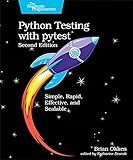
Python Testing with pytest: Simple, Rapid, Effective, and Scalable


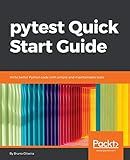
pytest Quick Start Guide: Write better Python code with simple and maintainable tests


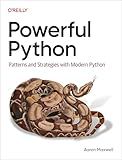
Powerful Python: Patterns and Strategies with Modern Python


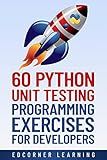
60 Python Unit Testing Programming Exercises for Developers : Enhance your python coding skills or prepare for coding interviews. (Become Pythonista Book 6)


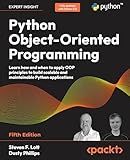
Python Object-Oriented Programming: Learn how and when to apply OOP principles to build scalable and maintainable Python applications


In order to pass parameters to a pytest test, you can use fixtures. Fixtures allow you to define reusable setup code that can be passed to one or more tests. You can pass parameters to fixtures using the @pytest.fixture decorator. Inside the fixture function, you can define parameters that will be passed to the test.
For example, if you have a test function called test_example that requires a parameter param, you can define a fixture that provides the value for param. You can then pass the fixture to the test function as an argument. This allows you to reuse the same fixture with different parameter values in multiple tests.
Additionally, you can use the pytest.mark.parametrize decorator to parametrize a test function directly, without the need for fixtures. This decorator allows you to define multiple sets of parameters and values to be passed to the test function.
Overall, pytest provides several ways to pass parameters to tests, making it flexible and easy to customize your test setup.
How to pass parameters to pytest test based on test environment (e.g. dev, test, prod)?
One way to pass parameters to pytest tests based on the test environment is to use pytest fixtures and command line options.
First, create a fixture in your conftest.py file that reads the command line options and sets the environment parameter accordingly. Here's an example:
import pytest
def pytest_addoption(parser): parser.addoption("--env", action="store", default="dev", help="Specify the test environment")
@pytest.fixture(scope='session') def environment(request): return request.config.getoption("--env")
Next, you can use this fixture in your test functions by passing it as an argument:
def test_example(environment): if environment == "dev": # run test with dev environment parameters elif environment == "test": # run test with test environment parameters elif environment == "prod": # run test with prod environment parameters
Finally, when running your tests, you can specify the environment using the --env option:
pytest --env=test
This will run your tests with the specified environment parameters.
How to pass parameters to pytest test when running tests in parallel?
When running tests in parallel with pytest, you can pass parameters to tests using fixtures.
Here is an example of how you can pass parameters to tests when running in parallel:
- Define a fixture that takes in parameters in your conftest.py file:
import pytest
@pytest.fixture(params=[1, 2, 3]) def param(request): return request.param
- Use the fixture in your test functions:
def test_example(param): assert param in [1, 2, 3]
- Run your tests in parallel using the -n flag with the number of CPUs you want to use:
pytest -n auto
In the above example, the test function test_example will be executed with each of the parameters [1, 2, 3] in parallel. The param fixture will take each parameter in the list and pass it to the test function.
What is the best practice for passing parameters to pytest test?
The best practice for passing parameters to pytest tests is to use fixtures. Fixtures in pytest are a way to provide data, objects, or resources to test functions. By using fixtures, you can pass parameters to test functions without cluttering the function signature or the test invocation code.
To pass parameters using fixtures, you can define a fixture function that takes the parameters you want to pass and then use it as an argument in the test function. Here's an example:
import pytest
@pytest.fixture def my_param(): return "Hello, World!"
def test_my_function(my_param): assert my_param == "Hello, World!"
In this example, the my_param fixture function returns the string "Hello, World!". The test_my_function test function takes my_param as an argument, which makes the value returned by the fixture available to the test function.
You can also use fixture parameters to pass different values to the test function, making it easy to test different scenarios with the same test function.
Overall, using fixtures to pass parameters to pytest tests is a clean and flexible approach that helps keep your test code organized and maintainable.
